Amphitrematidae
Edward Mitchell and Ralf Meisterfeld


This tree diagram shows the relationships between several groups of organisms.
The root of the current tree connects the organisms featured in this tree to their containing group and the rest of the Tree of Life. The basal branching point in the tree represents the ancestor of the other groups in the tree. This ancestor diversified over time into several descendent subgroups, which are represented as internal nodes and terminal taxa to the right.

You can click on the root to travel down the Tree of Life all the way to the root of all Life, and you can click on the names of descendent subgroups to travel up the Tree of Life all the way to individual species.
For more information on ToL tree formatting, please see Interpreting the Tree or Classification. To learn more about phylogenetic trees, please visit our Phylogenetic Biology pages.
close boxDiscussion of Phylogenetic Relationships
The position of the Amphitrematidae is currently uncertain. Due to an error by De Saedeleer (1934) this family has been sometimes included with the Granuloreticulosea, but there is no doubt that Amphitrema and Archerella have filopodia (cf. images).

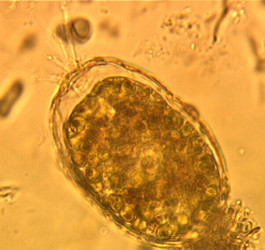
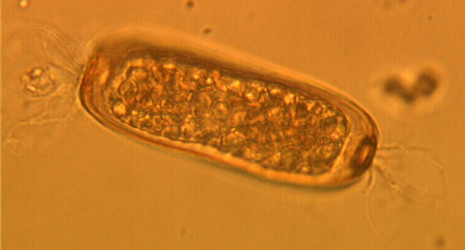
Amphitrema stenostoma (left), Archerella flavum (right). © Edward Mitchell
The pseudopodia of Paramphitrema differ significantly, and it is unclear whether the presence of two apertures is sufficient to place this genus in the Amphitremidae.

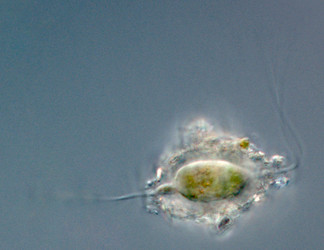
Paramphitrema. © 2008 Chitchai Chantangsi
Diplophrys and Microcometes have previously been included in this area but Diplophrys has since been shown to have affinities with the Labyrinthulids (Dykstra & Porter, 1984) and Microcometes is a flagellate.
Title Illustrations

| Scientific Name | Amphitrema wrightianum |
|---|---|
| Specimen Condition | Live Specimen |
| Identified By | Edward Mitchell |
| Copyright |
© Edward Mitchell

|
| Scientific Name | Amphitrema wrightianum |
|---|---|
| Comments | Endosymbiontic algae are visible in red (fluorescence microscopy) |
| Specimen Condition | Live Specimen |
| Identified By | Edward Mitchell |
| Copyright |
© Edward Mitchell

|
| Scientific Name | Paramphitrema |
|---|---|
| Location | BC, Canada |
| Specimen Condition | Live Specimen |
| Identified By | Chitchai Chantangsi |
| Copyright |
© 2008
Chitchai Chantangsi

|
About This Page
This page is being developed as part of the Tree of Life Web Project Protist Diversity Workshop, co-sponsored by the Canadian Institute for Advanced Research (CIFAR) program in Integrated Microbial Biodiversity and the Tula Foundation.
Edward Mitchell

University of Neuchâtel
Ralf Meisterfeld

Rheinisch-Westfälische Technische Hochschule Aachen, Germany
Correspondence regarding this page should be directed to Edward Mitchell at
edward.mitchell@unine.ch
and Ralf Meisterfeld at
meisterfeld@rwth-aachen.de
Page copyright © 2009 Edward Mitchell and Ralf Meisterfeld
 Page: Tree of Life
Amphitrematidae .
Authored by
Edward Mitchell and Ralf Meisterfeld.
The TEXT of this page is licensed under the
Creative Commons Attribution-NonCommercial License - Version 3.0. Note that images and other media
featured on this page are each governed by their own license, and they may or may not be available
for reuse. Click on an image or a media link to access the media data window, which provides the
relevant licensing information. For the general terms and conditions of ToL material reuse and
redistribution, please see the Tree of Life Copyright
Policies.
Page: Tree of Life
Amphitrematidae .
Authored by
Edward Mitchell and Ralf Meisterfeld.
The TEXT of this page is licensed under the
Creative Commons Attribution-NonCommercial License - Version 3.0. Note that images and other media
featured on this page are each governed by their own license, and they may or may not be available
for reuse. Click on an image or a media link to access the media data window, which provides the
relevant licensing information. For the general terms and conditions of ToL material reuse and
redistribution, please see the Tree of Life Copyright
Policies.
- First online 06 May 2009
- Content changed 06 May 2009
Citing this page:
Mitchell, Edward and Ralf Meisterfeld. 2009. Amphitrematidae . Version 06 May 2009 (under construction). http://tolweb.org/Amphitrematidae/124617/2009.05.06 in The Tree of Life Web Project, http://tolweb.org/




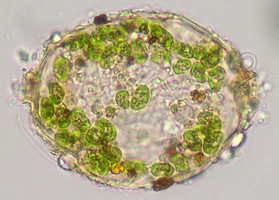
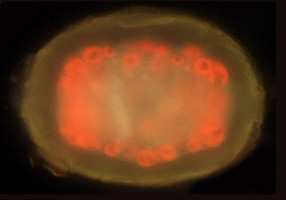
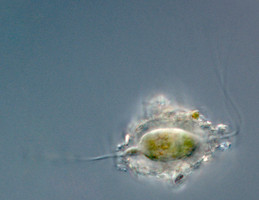
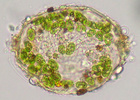
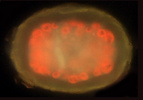
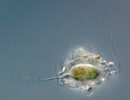

 Go to quick links
Go to quick search
Go to navigation for this section of the ToL site
Go to detailed links for the ToL site
Go to quick links
Go to quick search
Go to navigation for this section of the ToL site
Go to detailed links for the ToL site